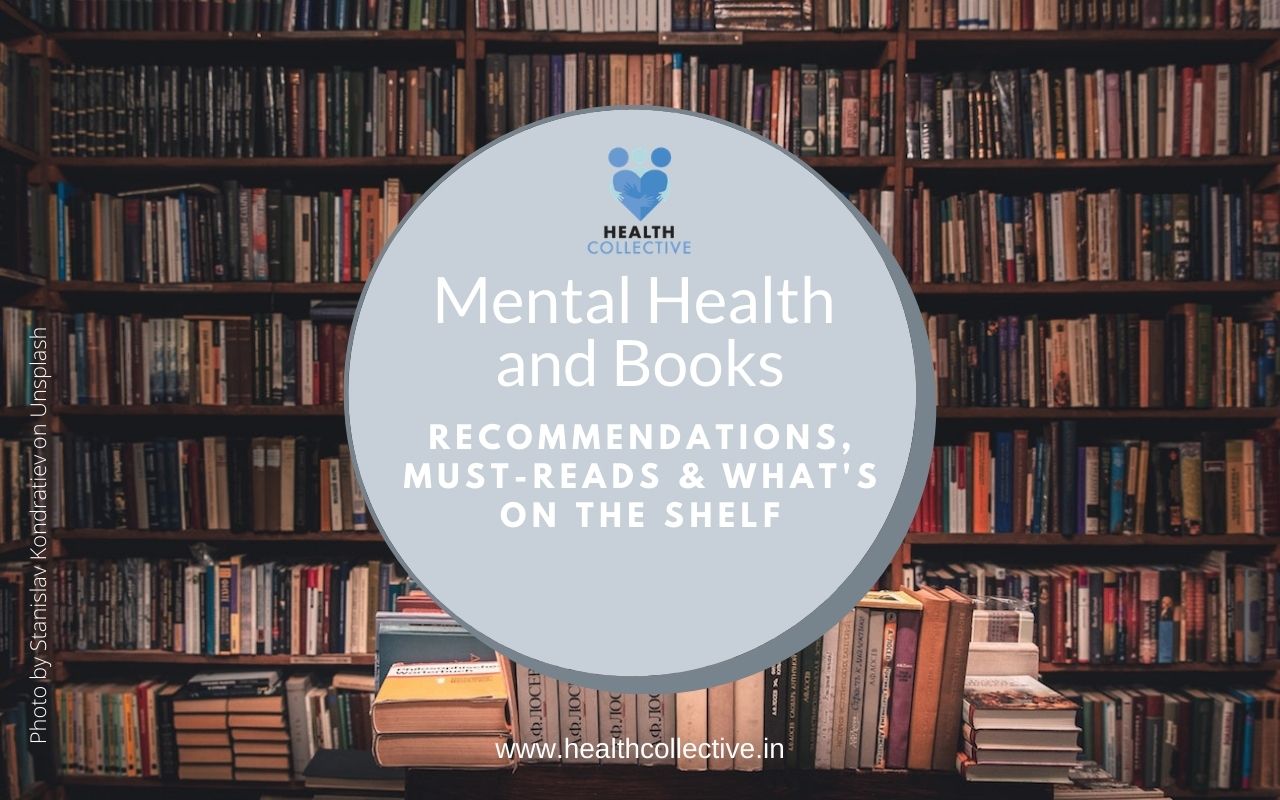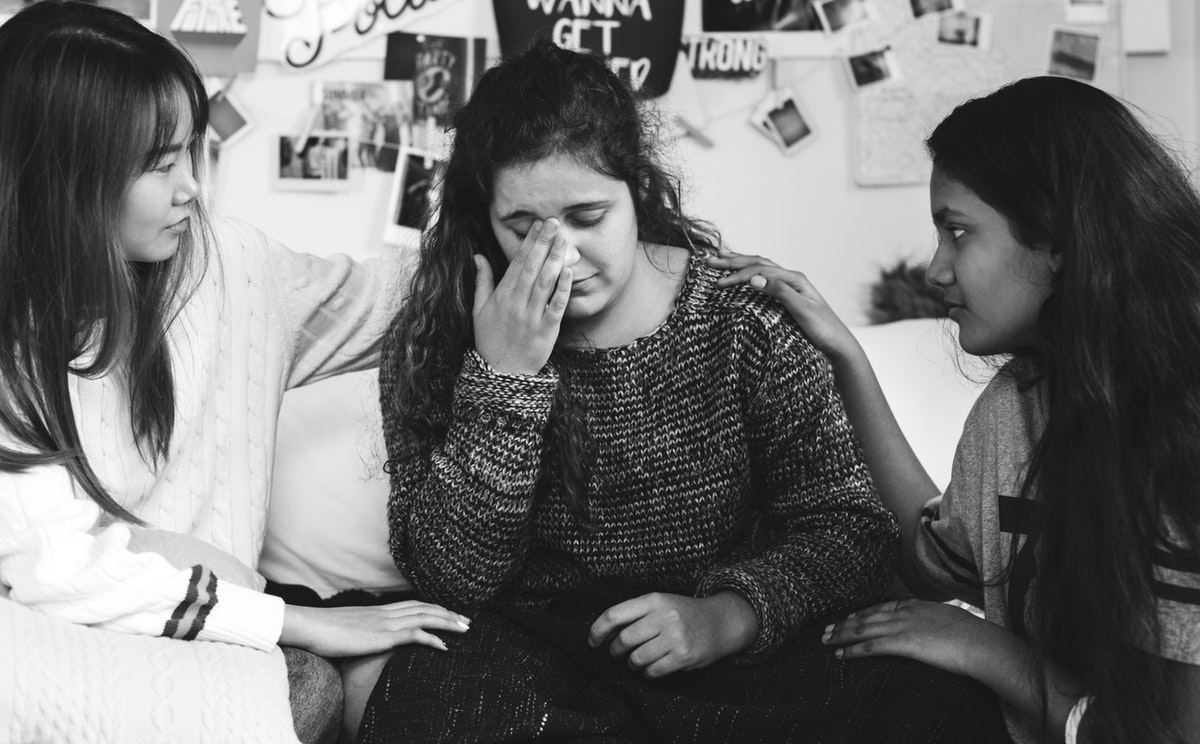Why We Need More Conversation and Sunlight Around Mental Health
By Chintan Girish Modi
Aparna Piramal Raje is a columnist, author, and teacher who lives with bipolarity. Her new book Chemical Khichdi: How I Hacked My Mental Health is a candid account of her lived experience as a person who has worked diligently to understand this mental health condition and is now ready to share her journey and helpful resources, with others. The book is rooted in “radical transparency” because the author wants to speak out against stigma.

What struck me about your book is how empowering the language is. How did you get past the technical jargon that doctors use to frame a mental health condition for their patients? When did you realise that language could help you reframe your relationship with bipolarity?
It’s so great to hear that you found the language empowering. Since I am not a trained mental health expert or a medical professional, I am not really capable of technical jargon. I simply drew from my lived experience and tried to get the reader as close to my mind as possible. Also, writing for a newspaper for over a decade has shaped my writing to make it accessible to a wider audience, as opposed to, for example, if I had been writing for an academic publication.
It is interesting that you comment about the role of the language in reframing my relationship with my condition, because that is exactly the subject of one of my upcoming talks – where I describe the different ways in which words can, quite literally, change our minds and heal our lives. I have only realised this in hindsight, though, on reflection, when I was thinking of the topic for the talk.
Could you help us unpack the metaphor of “chemical khichdi” in the title of your book, and also your description of bipolarity as “a psychological and physiological civil war”?
“Chemical khichdi” is a playful reference to the chemical imbalances in my brain which result in a serious mental health condition. It marks the acceptance of bipolarity as a brain health issue requiring medication, after many years of being ambiguous about it. There is a poem by this name in the book, describing this moment of acceptance. While ‘khichdi’ colloquially means ‘mess’, it is also a nourishing meal, so there is a positive connotation to it too, although my original intent was ‘mess’.
The reference to ‘civil war’ underlines how extreme mood swings make me feel that I am at war with myself, with too many uncontrollable thoughts and emotions. If one follows Vedanta, then the mind and intellect are at war with each other. This is a major faultline and the body gets caught up in the cross-fire, there is no alignment amongst the three.
It is psychological, because it involves thoughts and emotions, and it is physiological, because it results in chemical imbalances, which manifest themselves in other behavioural and physical symptoms. As I have written in the book, if I don’t sleep for five nights in a row, then I’m at risk of getting manic or hypomanic, because of physiological reasons. But what is keeping me up for five nights in a row are psychological reasons, so it is a combined war.
What are some of the most annoying stereotypes that people tend to have about bipolarity?
There is still a huge lack of understanding about bipolarity, its symptoms and triggers. Some people assume that these mood swings happen all the time, that there is no downtime between mood episodes, or scope for ‘normalcy’. Or the term is used too casually, when some associate normal mood swings with being bipolar. It would be good if the layperson understands that these mood swings vary in frequency and intensity depending on each individual, and that it is possible to live a ‘normal’ life, despite having a clinical diagnosis of bipolarity. Also, I think similar stereotypes exist with all other mental health conditions – anxiety, depression, ADHD, and more. We need more dialogue, conversation, and sunlight around mental health.
Tell us about the feedback that your book has received from different kinds of readers – people who live with bipolarity, their families and caregivers, mental health professionals.
I am thrilled to share that it’s been really positive feedback. In general, I’ve been getting three kinds of feedback: from the general public, that this is an act of courage (honestly, which shows how much stigma there is around mental health), and how this book is helpful even to those who do not have a mental health condition, but simply as a book with life lessons for all. This is what I had hoped for.
From individuals who live with mental health conditions (not necessarily only bipolarity) and their caregivers – many find the book helpful. Some seek help or advice in finding professional help, some just want to share their stories.
I have had individuals write a poem on the book, send me a playlist, or send me long handwritten notes on how the book has impacted them. A YouTuber made it into a 15 min video in Hindi to widen its reach. It’s good to see that it’s resonating with people of all ages.
Finally, some mental health professionals, such as therapists, are using it in their sessions with their clients. I would definitely like to work more with the mental health community.

You share a lot of your lived experience in the book, but you also caution readers against assuming that you speak on behalf of everyone who lives with bipolar. What helped you become aware of the privileges that you have because of your socio-economic status?
To be quite honest, having grown up in Mumbai, I was aware of my privilege ever since I was a child. I couldn’t help be aware of it, having been born into an affluent family in a developing country. Our school headmistress, Shirin Darasha, also reiterated this fact to all students.
My access to mental health professionals in the UK – psychiatrist, therapists – reinforced this point to me. Their approach has a rich vocabulary, often leading to greater insights into the self and into the condition. I have benefitted from it only because of my privilege, which is unfortunate. This is not to say that there aren’t excellent mental health professionals in India, but it still feels like a small cohort for a country of our size. I hope that as the mental health landscape evolves in India, quality mental health care will be more accessible to more people in India.
You have pointed out that well-meaning gestures of care from a loving partner can end up making a person living with bipolarity feel like they are constantly being seen as a patient. What are some sensitive and skillful approaches to navigating this issue in a relationship?
Maybe you should ask my husband that question? (laughs)
I would say that it is important for both caregiver and the patient to evolve, depending on the situation. There are times when the caregiver has to raise a red flag, and then there are times where the caregiver has to trust the patient to make their own decisions – whether that is about daily medication, or bigger issues related to career decisions, for example.
And for the patient, it is important to keep establishing that trust, to remain healthy and happy for as long as possible, so that the caregiver is less anxious. For example, travel is a big priority for me, and I love going to offbeat locations. Staying peaceful and calm is a huge incentive for me to make Amit feel secure that I can take care of myself on my trips, and for me to regain the autonomy, agency, and independence that are vital for my happiness.
Finally, it is important for both partners to spend time together as a ‘normal’ couple to ‘subvert’ this caregiver-patient archetype. This could be family time, trips, movies, date nights, or anything else that strengthens their bond and connection.
How do you protect your mental health while discussing this book with readers, journalists, and audiences that you are invited to address? What boundaries do you set?
I have not encountered any issues of privacy in my interactions with readers, journalists, or audiences so far. In fact, writing about mental health has given me a great sense of purpose and direction, and a lot of fulfillment. If anything, I need to set boundaries on my hopes and ambitions because I am quite prone to imagining that one book on mental health can change India’s mental health landscape! I have to set limits on how much time I spend working on my new mission as a mental health advocate.
I do this by taking time to relax at the end of every day – exercise, yoga, table tennis with my kids, family dinners, reading, music, or just far too much WhatsApp with my friends.
I also continue to work on non-mental health related work – my column on CEOs and their workplaces in the Mint, my teaching on design and writing in Ahmedabad, my LEGO workshops, and related speaking engagements. It is good to bounce between these and mental health-related work.
What projects are you currently working on? What else would you like to explore?
Trying to shape the dialogue and conversation around mental health in India is a huge project for me. Although it’s early days, I’m exploring whether a journal, featuring the seven therapies in Chemical Khichdi, could be a good option to help readers reflect on their mental health in a structured, creative and inspiring way. Also, I might like to set up support groups to see if individuals (and caregivers) would like to connect with each other. These are just ideas though. There is still a lot to do with Chemical Khichdi itself.
Read the book
Chemical Khichdi: How I Hacked My Mental Health (2022) has been published by Ebury Press, an imprint of Penguin Random House, and is available for order at all major bookstores in India and online.
Chintan Girish Modi writes about books, films, gender, sexuality and mental health



